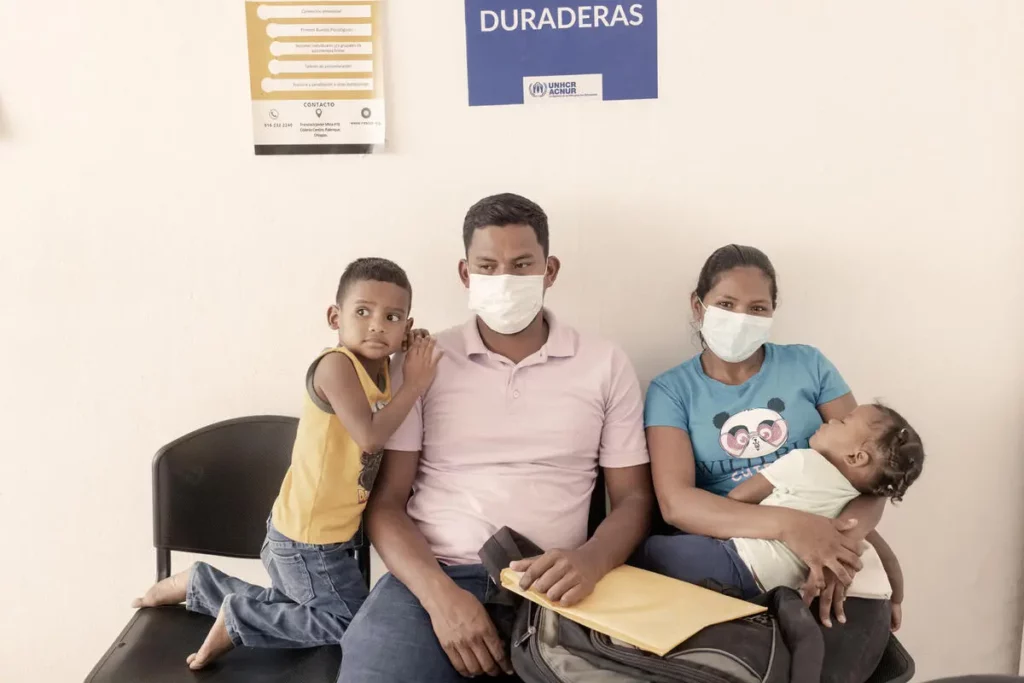
The banks of the river in Frontera Corozal, Chiapas, serve as more than just a picturesque locale near ancient Mayan ruins; they are a critical juncture for the growing wave of asylum-seekers and migrants navigating their way through the Americas. Among these, families like Carlos Gomez and Haiset Hernandez, who journeyed from Honduras with their young children, are seeking refuge from the dire threats that upended their lives back home.
Carlos, once a farmer in the remote La Mosquitia region of Honduras, found his livelihood and family in peril when drug traffickers demanded to use his land. Faced with unimaginable threats, and after witnessing the extreme violence inflicted on their neighbors for resistance, the family had no choice but to flee. Their escape took them across borders, from Guatemala to Mexico, with hopes of safety and stability.
Their arrival in Mexico marked the beginning of a challenging new chapter. Picked up by immigration agents while on foot and out of funds, the family was detained before being directed to the Mexican Commission for Refugee Assistance (COMAR) to apply for asylum. The wait for a decision has been fraught with uncertainty, compounded by the scarcity of work in their temporary home.